Top 10 Cloud Hosting for Startups in 2025

Starting a business comes with numerous challenges, from developing your product to getting your first customers. Among these priorities, selecting a reliable web hosting solution is essential. As startups scale, they need hosting options that offer flexibility, performance, and cost efficiency.
Cloud hosting has become the right choice, providing the scalability and reliability needed for growing businesses. This article explores the top cloud hosting providers for startups and highlights their key features.
Our Top 10 Cloud Hosting Picks
What Is Cloud Hosting?
Cloud hosting involves using a network of virtual servers to deliver computing resources on demand. Startups can rent scalable infrastructure from a distributed system of interconnected servers, rather than purchasing and maintaining a physical server. In the event of a failure, workloads can be easily moved between servers, ensuring ongoing availability and performance.
Because the cloud hosting infrastructure is spread across multiple data centers in different regions, it cannot rely on a single hardware component. This reduces downtime and improves reliability.
Importance of Choosing the Right Cloud Hosting for Startups
Cloud hosting is a popular option over traditional hosting techniques for startups since it provides a flexible, scalable, and affordable solution that supports growth. Let's analyze the main benefits:
- Cost Efficiency: Startups typically have limited budgets, so it's crucial to choose a cloud hosting provider with flexible pricing plans that meet your specific needs.
- High Reliability: Downtime is the biggest challenge for startups. A proper cloud service should offer high availability and reliability. This will reduce downtime, thus resulting in keeping your website functional.
- Increase Security: Robust hosting services offer strong security features, such as firewalls, encryption, and regular backups, to help protect sensitive data.
- Improve Performance: Offering fast load times and minimal downtime, the right cloud provider improves website performance. This is crucial for maintaining a positive user experience.
- More Flexibility: Flexibility is an important part of cloud hosting due to the ability to change and adapt to the demands. With greater flexibility, startups can optimize their processes, increase productivity, and stay at a competitive level.
- Greater Scalability: With the right hosting solution, startups can easily extend their resources as their traffic increases. Selecting a scalable hosting provider means your startup won’t need to migrate to a new platform as it grows, reducing risk and avoiding downtime or data loss. This helps ensure long-term operational stability.
Choosing the right hosting solution is fundamental for startups. It directly impacts performance, security, scalability, and the ability to adapt quickly in a competitive market. All these advantages help startups choose a reliable and flexible cloud hosting provider for sustainable growth.
The 10 Best Cloud Hosting Services for Startups
Selecting a reliable cloud hosting provider becomes a crucial part of digital success. The right service not only ensures your website or application runs smoothly but also provides the scalability, performance, and security necessary to support rapid development and user demand. To ease this decision, we’ve listed the 10 best cloud hosting providers for startups, including:
1. Microtica
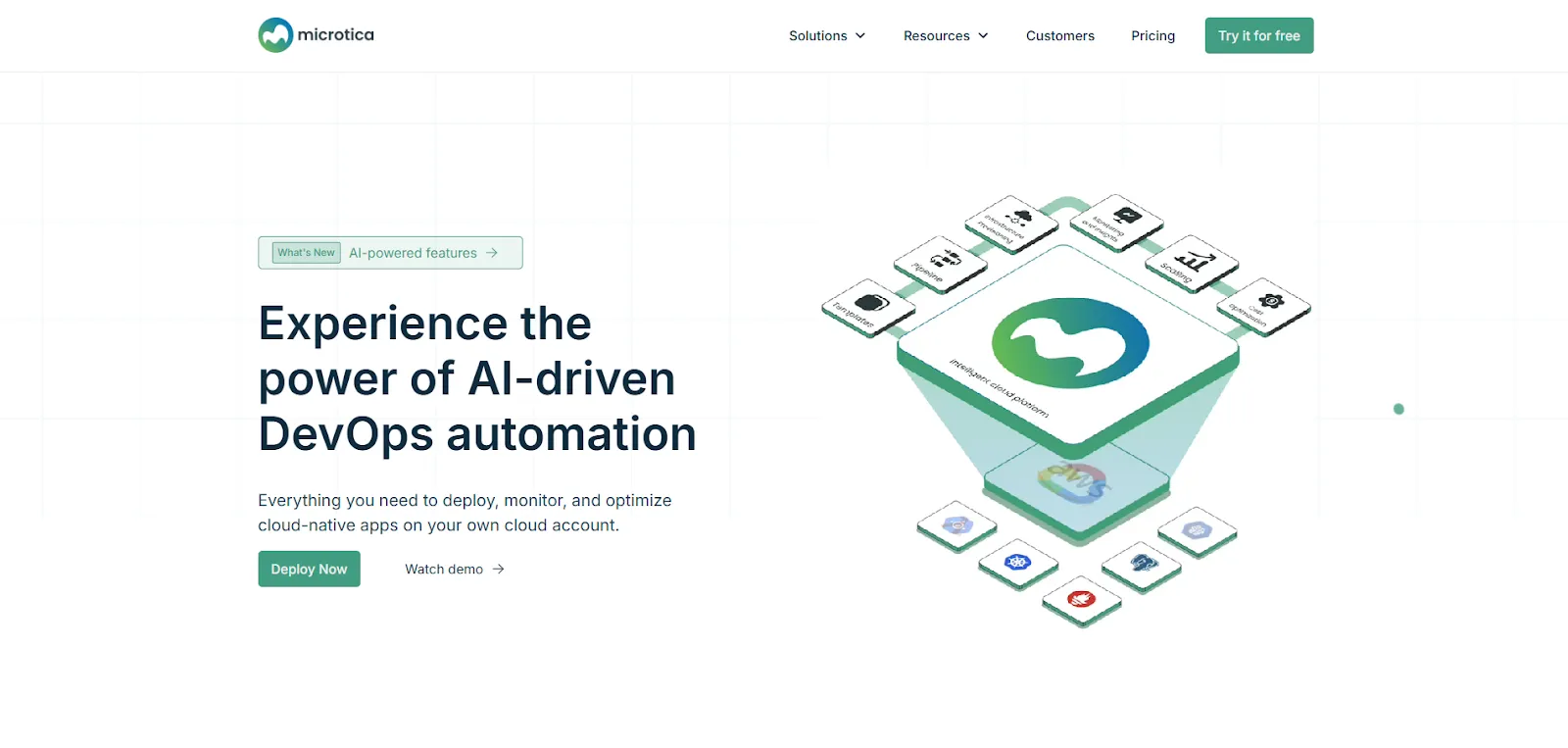
Microtica is a forward-thinking cloud automation platform that empowers startups to streamline and scale their cloud operations with confidence. Designed with simplicity and scalability in mind, Microtica allows teams to automate complex DevOps workflows, manage infrastructure as code, and deploy applications effortlessly to public cloud environments.
What sets Microtica apart is its commitment to making cloud infrastructure accessible and manageable for growing teams without the overhead of large DevOps teams. Its cost efficiency and high level of automation help reduce operational complexity, enabling startups to focus more on building products rather than managing infrastructure.
For early-stage companies that want to grow quickly without compromising reliability or control, Microtica offers a powerful and intuitive solution tailored to their evolving needs.
2. Amazon Web Services (AWS)
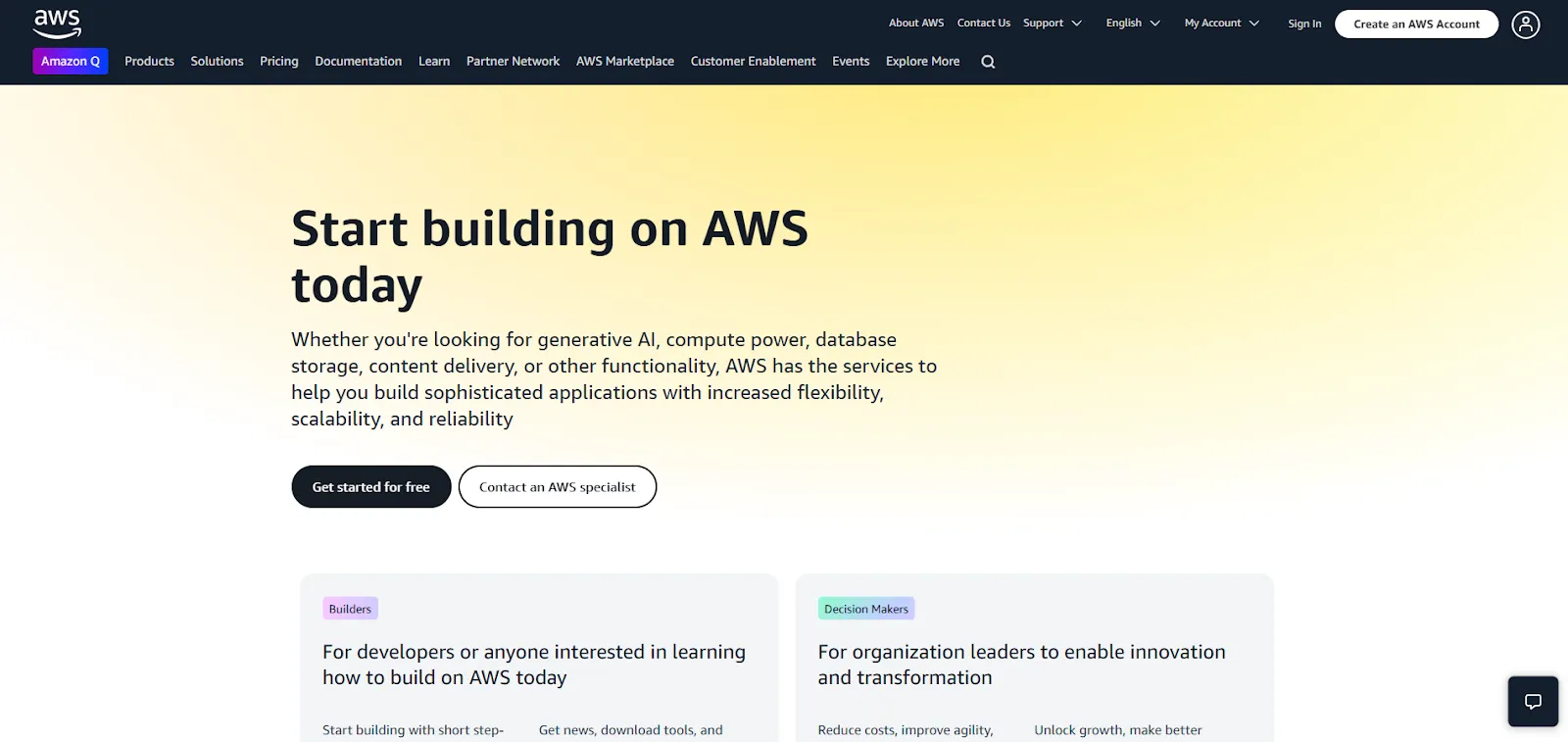
AWS provides a wide range of benefits for startups, including support services, scalability, and high security options. As one of the most robust cloud hosting providers, startups gain access to credits, technical support, and training resources. It's a pay-as-you-go pricing model, which makes it a great choice for growing companies.
3. Google Cloud Platform (GCP)
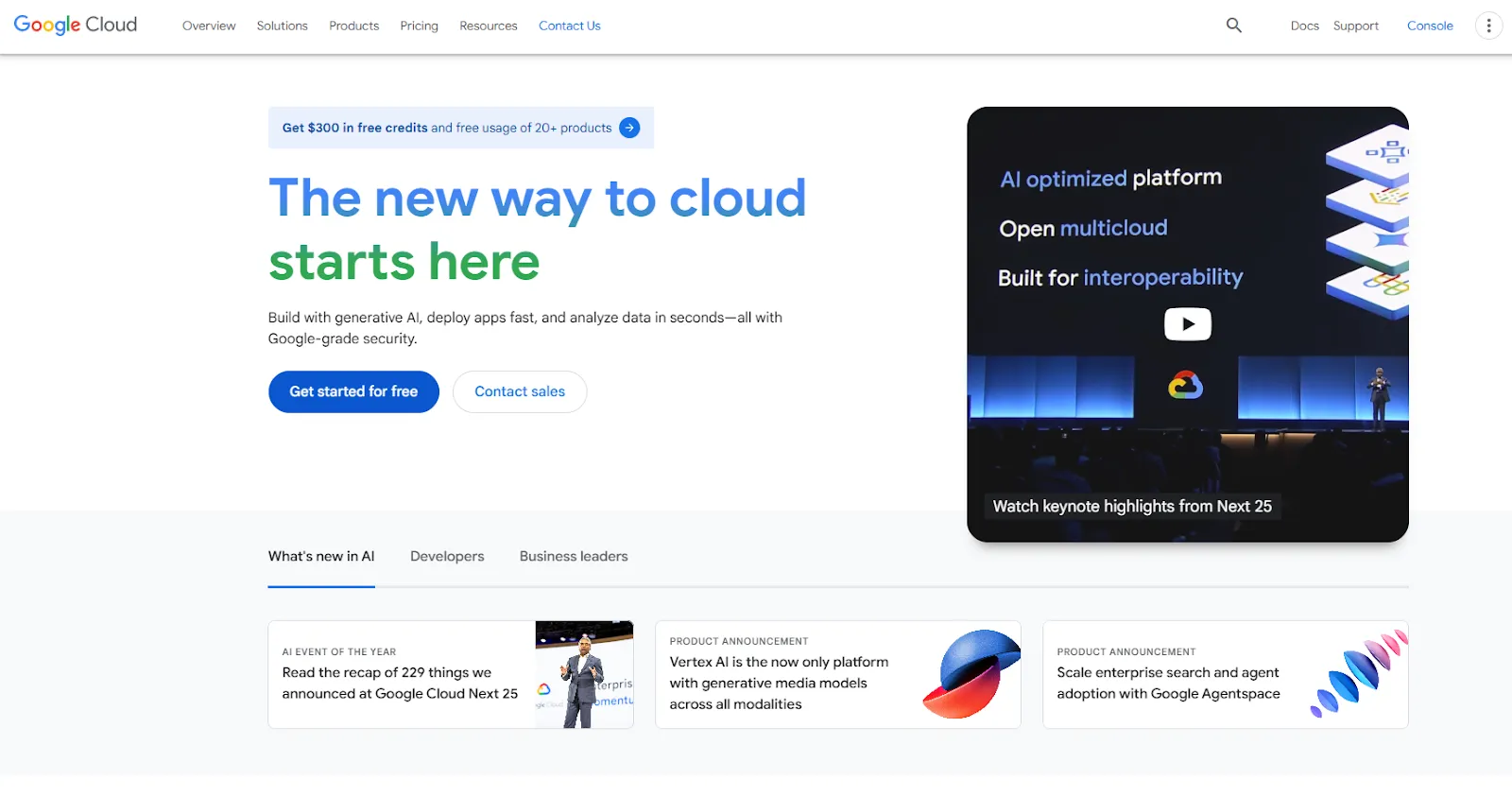
Another great cloud hosting for startups is GCP, a good provider especially for developers. It offers advanced tools, good for growth and innovation. Startups can easily scale containers with tools such as Google Kubernetes Engine (GKE) and Cloud Run.
4. IBM Cloud
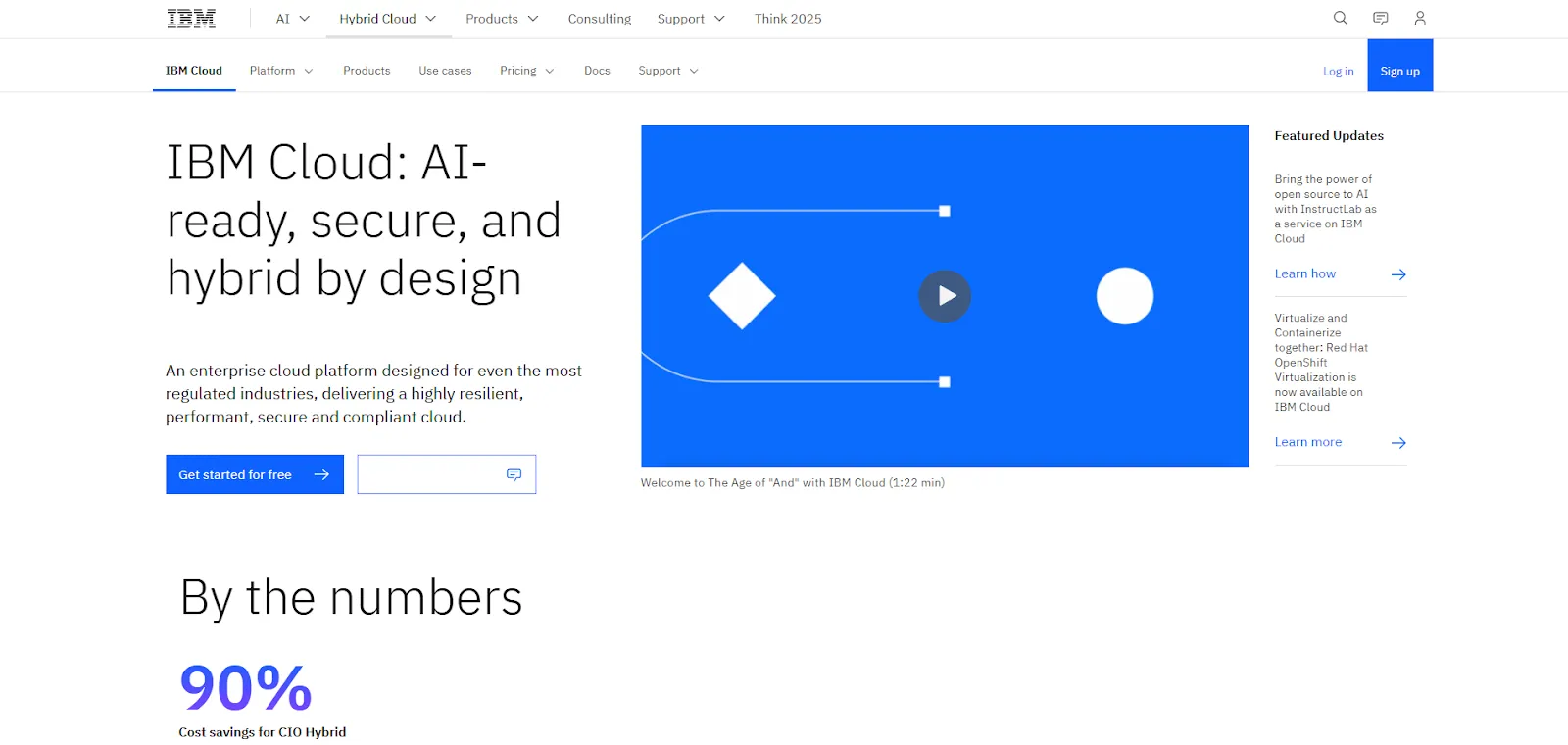
With plenty of services and tools, IBM Cloud proves to be a flexible platform for startups. With scalable infrastructure, artificial intelligence, and data analytics, IBM Cloud enables companies to create innovative solutions to increase their success.
5. Microsoft Azure

Microsoft Azure offers a highly secure cloud platform that supports hybrid cloud environments, making it particularly beneficial for startups. Azure for Startups provides access to credits, development tools, and technical resources, enabling startups to build, deploy, and scale confidently on a trusted platform. Also, its wide range of services enables startups to grow and innovate.
6. DigitalOcean

DigitalOcean is known for its speed, cost-effectiveness, and user-friendly interface. With offerings like Droplets, Kubernetes, and scalable storage, DigitalOcean enables startups to launch quickly and expand as needed. Its scalability and flexibility make it easy to deploy and manage cloud infrastructure.
7. Vultr

Vultr delivers high-performance cloud hosting That is affordable and easier to use. Its simple dashboard empowers startups to deploy applications quickly and scale resources on demand. It’s especially well-suited for developers who prefer minimal overhead and maximum control. For startups looking for flexible cloud solutions to boost development, Vultr can provide essential tools.
8. Heroku
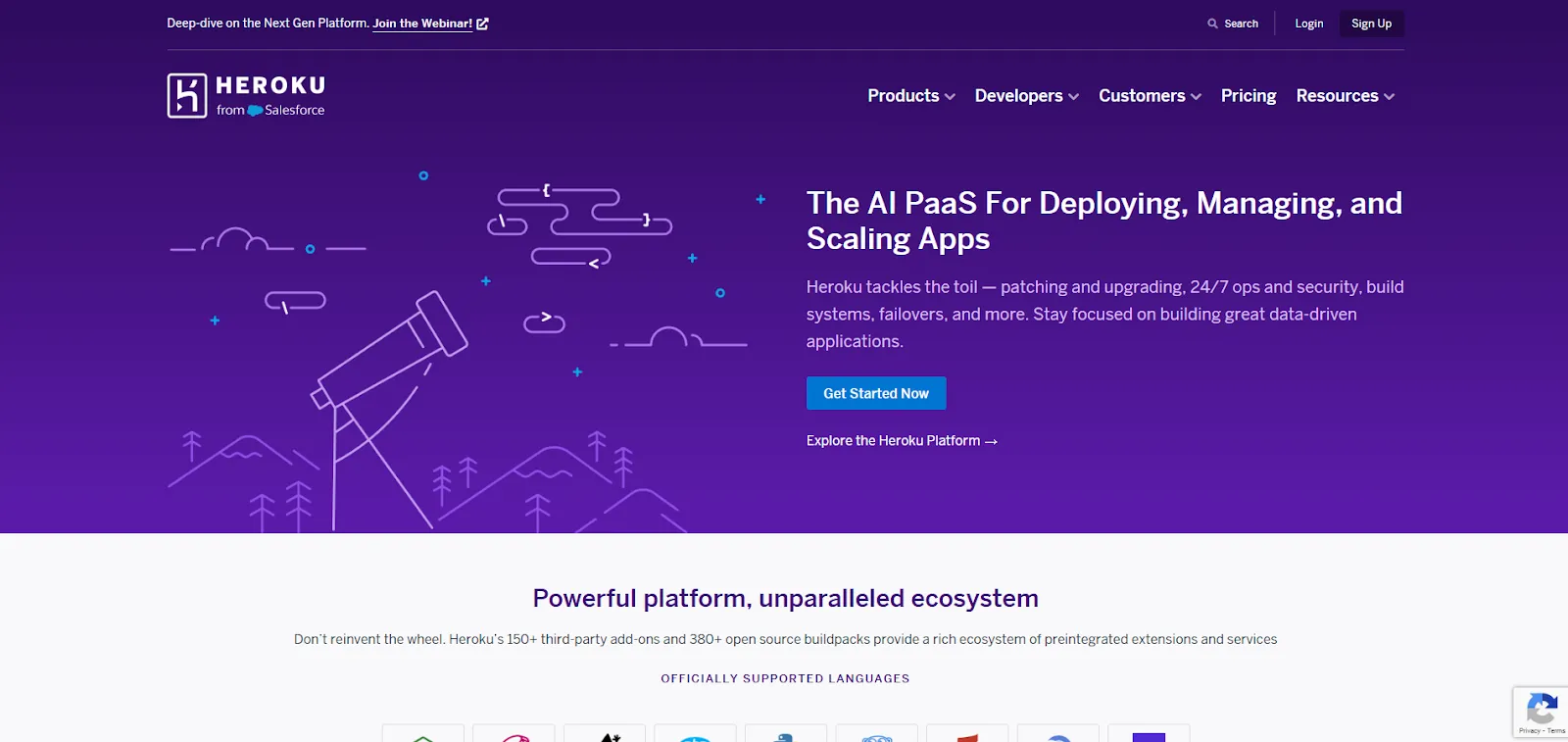
Heroku, a Platform-as-a-Service (PaaS) solution, is designed to deploy simply and faster. Startups can focus entirely on building their applications, while Heroku handles infrastructure, scaling, and security. Heroku’s user-friendly interface makes it effective to use, so startups can create, implement, and grow applications.
9. Kamatera

Startups can deploy servers in minutes because Kamatera offers flexible and high-performance cloud hosting. Startups can customize their cloud infrastructure to meet their unique requirements and financial limits thanks to the flexible options it offers.
10. Pulumi
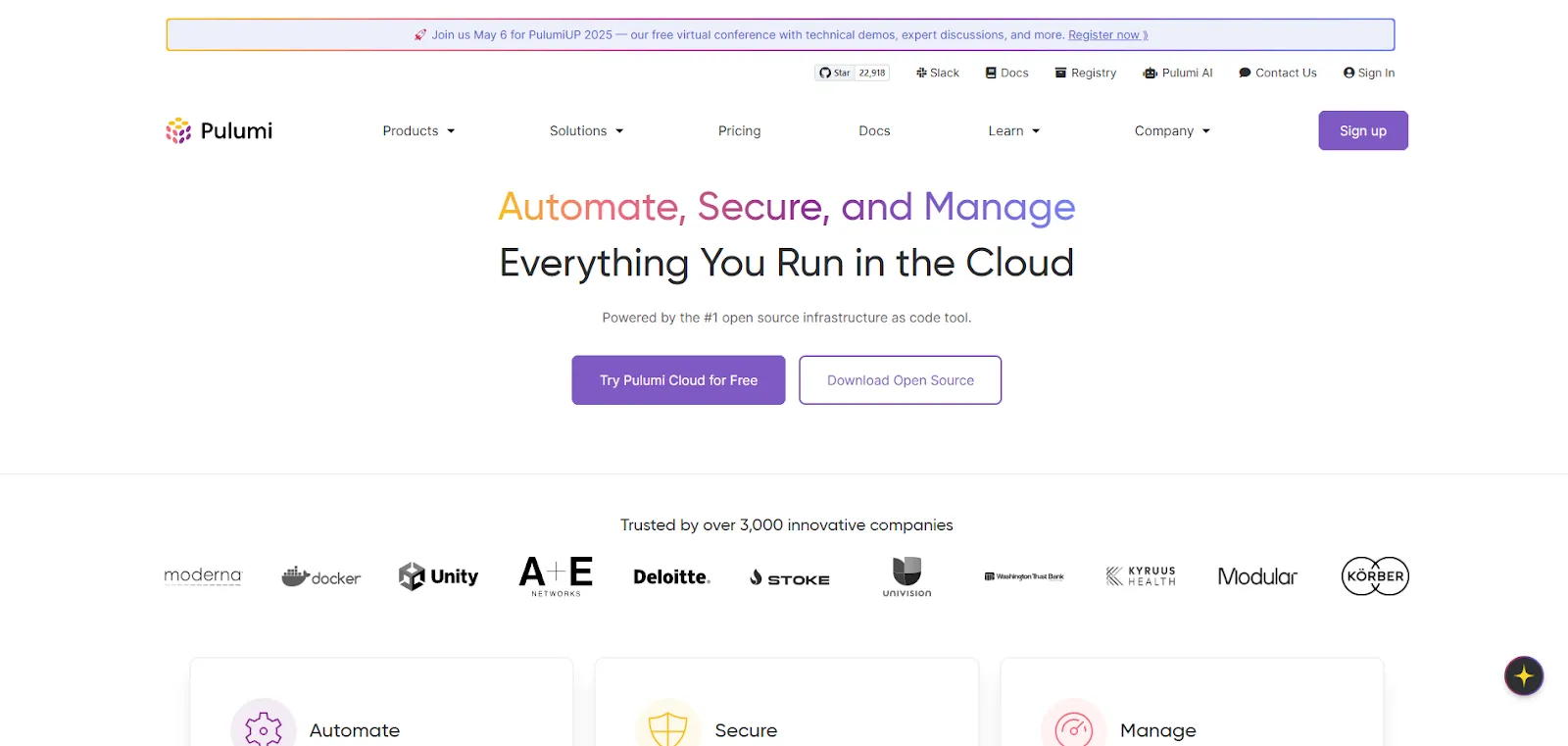
Pulumi is a cloud infrastructure platform that allows developers to define and manage resources using standard programming languages. It supports automation of infrastructure deployments and helps teams manage cloud environments more efficiently. With a focus on infrastructure as code, Pulumi can be useful for startups that prefer a developer-centric approach to setting up and scaling cloud systems.
How to Choose the Right Cloud Hosting
Long-term success depends on choosing the correct cloud hosting. With so many options, it can be hard to choose the best cloud provider. The solution is to consider key factors when evaluating your options, such as:
- Scalability: Choose a provider that allows you to scale resources. It ensures your infrastructure can grow together with your business.
- Pricing: Making cost a priority helps avoid unexpected expenses. Understanding the cost structure in detail helps ensure you choose a provider that aligns with your current budget while offering flexibility at the same time.
- Performance: Performance is essential, especially for startups looking to establish a strong, reliable online presence from day one. With proven performance metrics, startups can ensure a reliable and responsive experience for their users.
- Security: When selecting a cloud provider for a startup, security is crucial. Strong security measures are essential for protecting sensitive data and ensuring secure cloud service.
- User-friendly: A user-friendly interface and integration with common development tools like Git, CI/CD pipelines, and APIs can streamline deployment and management. This can save time, reduce stress, and allow teams to focus on growing the business.
Implementing these practices will help to select the best cloud hosting provider and enhance your startup business's efficiency, productivity, and growth.
Final Thoughts
Choosing the best cloud hosting for startups involves evaluating key factors such as budget, scalability, user-friendly, and performance. It’s essential to find a server that matches your business’s growth potential, expertise, and specific operational needs. Whether you're looking for a cost-efficient, scalable, or simple cloud solution, there are many different cloud hosting solutions that will meet your requirements.
Subscribe to receive the latest blog posts to your inbox every week.
*By subscribing you agree to with our Privacy Policy.

Relevant Posts



